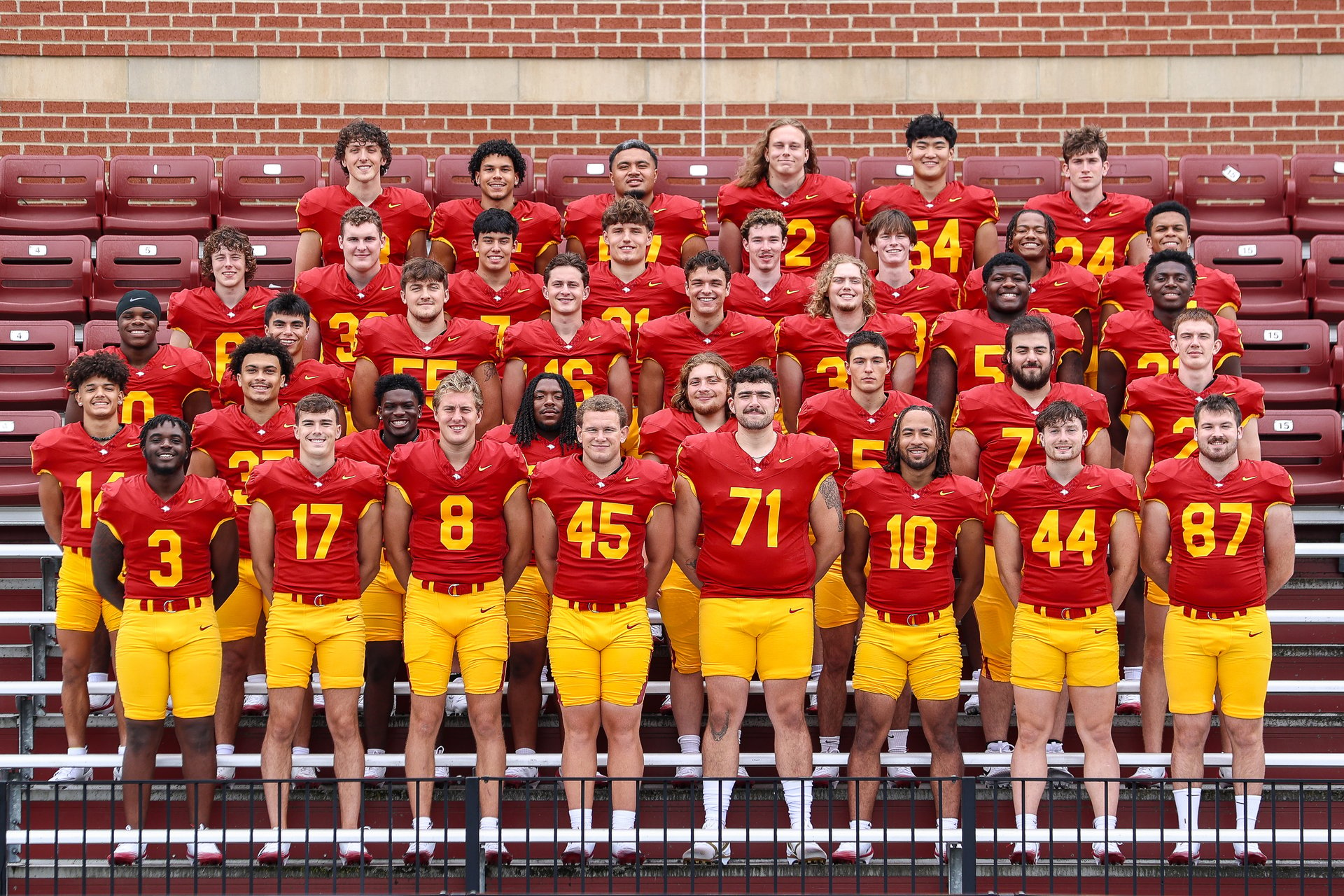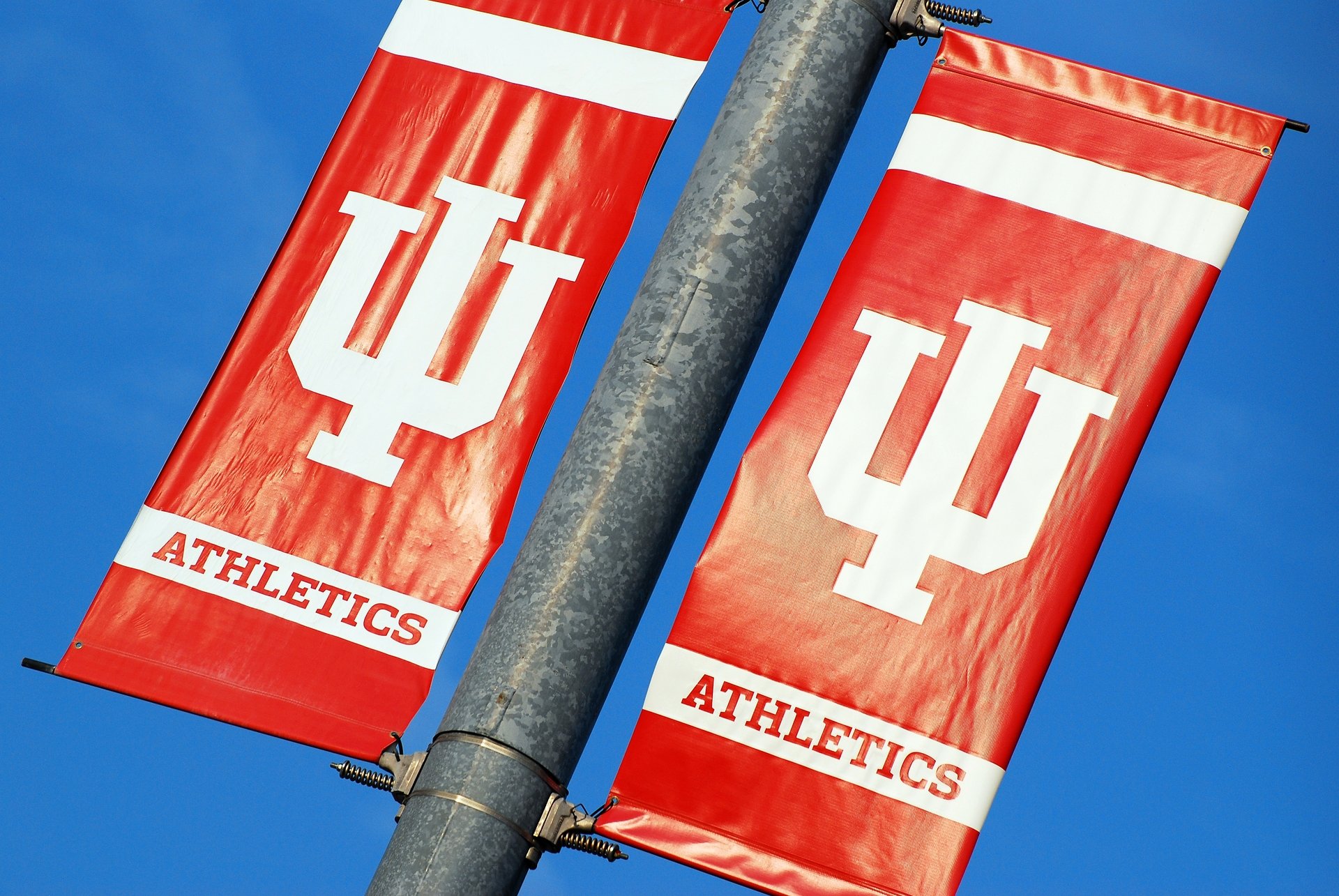Good morning, and thanks for spending part of your day with Extra Points.
Do you have a question you’d like answered in a future Extra Points mailbag? Leave it here in the comments, tweet me at @MattBrownEP, or email me at [email protected]. I’ll do a mailbag newsletter as soon as I get enough good questions.
Last week, multiple outlets reported that the exclusive negotiating window between Notre Dame and Under Armour has expired, meaning that the Irish will be hitting the apparel free agency market. As a private school, the exact terms of the contract were not disclosed, but when the deal was signed back in 2014, it was believed to be, according to SI, “the most lucrative apparel contract in college athletics history.”
A lot has changed since 2014…for Notre Dame, Under Armour, college sports, and for the college athletics apparel industry. Brands like Notre Dame don’t hit the actual free agency market all that often…elite brands often stick with the same company for decades.
I’ve examined a lot of these contracts, and talked to a few consultants over the last few days, including some with direct knowledge of Notre Dame’s previous contracts. Here are a few thoughts on what all of this actually means:
Remember what is actually in a college sports apparel contract
This sometimes gets a little muddy from the headlines, but it’s important to remember that most college sports apparel contracts aren’t really about cash. They’re about product.
Here’s an example. The headline to this story here is that UNLV signed an extension with Nike, valued at $9 million dollars…but Nike isn’t actually paying UNLV any money at all. The value is just in shoes, hoodies, socks and other athletic equipment…plus discounted rates for anything else UNLV needs to buy.
That’s standard for almost all low and mid-major athletic contracts, but outside of the very largest brands, there usually isn’t a massive cash payment. Auburn, one of UA’s largest clients, is paying out less than $3 million a year in cash. That’s about what UCLA is making from Nike. Moving forward, it is doubtful more than a dozen schools will clear $3 million a year in cold, hard cash.
Even before COVID, industry consultants have been telling me to expect less-generous terms for nearly everybody from new shoe companies, and COVID has only accelerated that timetable. Part of that is because of Under Armour’s changing priorities, supply-chain challenges to the industry, instability in the retail business, and more. Current contracts are less likely to include cash guarantees, deep incentives, and other marketing and distribution perks.
Notre Dame is one of the biggest brands in all of college athletics, and it may very well be one of the only megabrands to hit the open market for the next two years. I won’t be surprised if the terms aren’t quite as generous as you’d think though, especially given what Notre Dame got in 2014.
Under Armour isn’t completely out of the college sports game….at least, not yet
Over the last several years, UA has absolutely pulled back from the college athletics world. The apparel company ended deals with UCLA, Cal, Hawaii, Cincinnati, and others. Boston College left and signed a deal with New Balance.
Beyond that, I’m also told that UA saw a significant loss of human talent, as many of the individuals who had the most connections in the college sports world have since left the company. Mike McBride, for example, who helped broker Seton Hall’s contract with UA, is now an assistant AD for the Pirates, focusing on NIL. Walker Jones, a former marketing director at the company, now runs The Grove Collective, supporting Ole Miss. Industry analysts have told me that UA has not really replaced the managerial talent that focused on college relationships over the last few years.
Still, it isn’t totally accurate to say that UA is no longer interested in college athletics. While the firm was ending contracts with UCLA and Cal back in 2020, they still signed Texas Tech to an extension. They just signed The Citadel last month, extended with Robert Morris, and have continued their relationship with programs like Utah and South Carolina.
The experts I’ve talked to said that Under Armour shouldn’t be completely counted out, and that the company will fight hard to keep Notre Dame in their portfolio, even as Nike and Adidas (and potentially Jordan) are expected to get into the mix.
Eventually, apparel rights may be the domain of the athletes. But don’t expect that to start now
Last week, Andy Staples over at The Athletic suggested that Notre Dame could shake up the industry by allowing individual athletes to bring in their own shoe deals, (like the NBA does), rather than requiring all athletes to wear whatever Notre Dame contracts with. Via the story:
As someone whose podcast has been sponsored by Rhone and Rhoback, I also would heartily endorse their breathable, moisture-wicking, anti-stink, always-hold-up-in-the-wash garments. It was thinking about these companies — which make great clothes but don’t make shoes — that led to the realization that in the age of NIL, some smart athletic department is going to become the first that allows players to bring their own shoe deals. This could be especially helpful in basketball, but a possible first-round pick in football could command serious money, too. A third bidder also could drive up the price no matter what kind of deal the Irish make.
I asked around about this…and while I can see a world where this happens eventually, I’d be shocked if it happened now.
I’m told that the math doesn’t really make sense. In the NBA, most players who want one can secure some sort of shoe deal, with the majority being merchandise deals (free stuff and/or limited cash transactions). A handful of players have signature shoe deals, but not many….less than two dozen, and that includes players like Gordon Hayward that have deals with Chinese companies. Multiple All-Star caliber players do not have signature shoes. Only about a dozen WNBA players have ever been given signature shoes.
The college market doesn’t have Chinese companies looking to get involved, since college basketball isn’t as global a sport as the NBA. College athletes also generally only ‘national’ names for a year or two before becoming full-fledged professionals, and carry all the risks that come with doing business with twenty-year-olds.
While major shoe companies do occasionally do deals with college athletes, many of those are for non-athletic shoe brands (i.e brands wanting athletes to serve as pitchpeople for lifestyle brands). I’ve been consistently told that the number of college athletes who could command meaningful athletic shoe contracts is very, very small. It’s entirely possible that Notre Dame would only have two across their entire athletic department at any given time.
Maybe, as women’s basketball becomes more popular across the country, brands will want to be more aggressive in using college athletes as marketers. Maybe the shoe market expands in other sports, or when collective bargaining finally happens, this becomes a standard clause across the P5. But for now, the math doesn’t really justify leaving athlete shoe rights off the table. I’m told that would likely result in a worse deal for not just Notre Dame, but the typical athlete as well.
Keep an eye on the stuff beyond the headlines
The total cash value of all the equipment, as well as whatever licensing fee Notre Dame gets will probably grab the headlines…but these contracts will have other important clauses as well.
For example…will Notre Dame ask the winning apparel partner to make any contributions to the school’s NIL collectives? Will they need to commit to a certain number, or a certain dollar amount, of specific athlete partnerships?
It’s not uncommon for these contracts to also require the apparel partner to accept a certain number of undergraduate students (who may or may not be athletes) as summer interns. If Notre Dame can’t bargain for more money, can it leverage its brand for more educational or professional opportunities for its students? What does the best internship program in the country look like?
There are also some good old-fashioned nuts and bolts questions about marketing and retail. What sort of concessions or perks can Notre Dame secure for marketing and branding of their retail arm? What kinds of stuff is going to make its way into the university bookstores, off-campus retailers, and Dick’s Sporting Goods of Michigan City? How many alternate uniforms will be guaranteed?
Money isn’t the only thing that gets negotiated in these deals. These contracts are also about what gets sold where, how quickly it can be turned around, and what sort of specific perks and special treatment each school gets.
When Under Armour was aggressively trying to win business from Nike and Adidas, they weren’t just trying to compete by throwing the most money at schools, although they did sometimes do that (or throwing stock, which sometimes worked and sometimes didn’t). They also sold a greater customer service experience, more flexibility and more customizability than what other firms were offering. I’ve been told that over the last few years, that is no longer the sales pitch.
What is that pitch now? What is the new market for elite brands in a post-COVID, post-NIL world?
I’m more interested in those answers than I am in what logo will be on Notre Dame’s jerseys in a few years. After all, that logo probably won’t impact wins or losses.
Earn a free premium subscription to Extra Points, advance chapters of the book I’m writing, and other cool stuff, by referring Extra Points to your Twitter followers, department colleagues, classmates and more:
This edition of Extra Points is also brought to you by Bold.org

If you're a student in the US looking for a better way to pay for higher education, Bold provides thousands of students with $25k scholarships every year. Enter to win one of our monthly $25,000 scholarship to go towards your tuition, student loan debt, or other education related expenses!
If you have ideas for future Extra Points newsletters or #tips you want to share, our new tips line is [email protected]. To sponsor a future Extra Points newsletter, please email [email protected]. I'm also @MattBrownEP on Twitter, and @ExtraPointsMB on Instagram.etc.


















